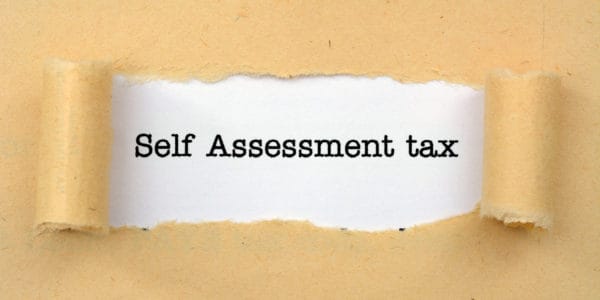If you miss the deadline for delivering your limited company accounts to Companies House, a late filing penalty will be automatically imposed, even if your company is dormant. Fines will continue to escalate until the overdue annual accounts are submitted. Below, we discuss how to appeal a filing penalty.
Whilst it is possible to appeal a filing penalty for late accounts, the law grants Companies House very limited discretion. Therefore, fees will only be waived in exceptional circumstances.
Key takeaways
- Companies House imposes escalating penalties for late filing, underscoring the importance of timely account submissions.
- Appeals against late filing penalties are rarely successful unless circumstances are truly exceptional.
- Dormant companies must still file annual accounts with Companies House to avoid penalties and maintain compliance.
Penalties for filing late accounts at Companies House
There are different levels of late filing penalties imposed when a company delivers its annual accounts after the statutory filing deadline. An automatic penalty is applied as soon as the deadline has passed. If accounts remain outstanding, subsequent higher penalties are applied at set intervals until the annual accounts are delivered to Companies House.
The late filing penalties for limited companies (including LLPs) are:
| Time after filing deadline | Private Limited Company/LLP | Public Limited Company (PLC) |
| Up to 1 month late | £150 | £750 |
| 1 to 3 months late | £375 | £1,500 |
| 3 to 6 months late | £750 | £3,000 |
| More than 6 months late | £1,500 | £7,500 |
These fines are rather substantial, which reflects the serious nature of failing to deliver accounts on time. But it doesn’t end there. If you file late annual accounts at Companies House two years in a row, the late filing penalties are automatically doubled.
In addition to financial charges, anyone viewing your company details on the register will see that your accounts are outstanding and/or they were delivered late at some point in the past.
There’s more. In extremely serious cases, company officers (directors and secretaries) can face disqualification and personal prosecution, the company’s credit score could be adversely affected, and the registrar may even take steps to strike off the company.
How to appeal a filing penalty
If you fail to deliver your annual accounts on time and wish to appeal a filing penalty received from Companies House, you must:
- Include the penalty reference stated on the penalty notice letter
- Provide a specific reason for delivering your accounts after the filing deadline
- Include all relevant details, i.e., dates and times
- Prove the circumstances were beyond your control, e.g., a catastrophic event such as:
- a fire or flood destroyed your records shortly before your annual accounts were due
- the company suffered a burglary a few days before the deadline
- records were lost due to a severe computer failure within 5 working days of the deadline
- an error made, or incorrect advice given, by Companies House contributed to the late filing
You can send your appeal by post to the address stated on the first page of the penalty notice received from Companies House, or you can send an email to [email protected]
Companies House aims to respond to all appeals within 20 working days. During the time the appeal is being considered, the late filing penalty will not be collected.
Reasons for late filing that are not accepted
Very few appeals are successful. Examples of generally unaccepted reasons for late filing of annual accounts include:
- The company is dormant
- You only set up your company to protect a company name
- It is the company’s first annual accounts
- The director is new and/or inexperienced
- You did not know how or when to file the accounts
- You did not receive the reminder sent by Companies House
- Your accountant or bookkeeper made a mistake/was ill/passed away
- Your previous accountant refused to release books to the new accountant
- Another director or the company secretary was responsible for the accounts
- You live or travel overseas
- The officer tasked with filing the accounts was on vacation
- The officer tasked with filing the accounts was ill or in hospital (only acceptable if they are the sole officer and are severely ill/unexpectedly admitted to hospital)
- The company was closed for the holidays
- Accounts were lost or delayed in the post
- The company did not make any sales or profit
- You cannot afford to pay the penalty
- The company is a non-profit or charitable organisation
- The company enters into a Company Voluntary Arrangement (CVA) before the penalty is levied
- The company suffered a fire, flood, burglary, or severe computer failure more than 5 working days before the deadline (the company has time to apply for an extension)
As is evident, Companies House really has very little scope when it comes to applying discretion and granting exemption from late filing penalties. Only in the most rare, unforeseen, exceptional circumstances will appeals of late filing penalties be successful.
Contesting an unsuccessful appeal
It is possible to challenge an unsuccessful appeal against a late filing penalties if you have additional information that can support your case. In such instances, you need to contact the senior casework manager, in writing, in the Late Filing Penalties Department.
If your appeal to the Senior Casework Manager is unsuccessful, the next step is to write to the independent adjudicators to request a review of your case. If an appeal to the independent adjudicators is unsuccessful, a final application can be made to Companies House at the specific office that deals with your account.
When and why were late filing penalties introduced?
In a bid to encourage companies to deliver their accounts on time, late filing penalties were introduced in 1992 under Statutory Instrument 1991 No. 2945 (C.92) of the Companies Act 1985. These regulations are now enforced under Section 453 (1) of the Companies Act 2006. Prior to the introduction of late filing legislation, there was increasing public concern regarding the number of limited companies failing to meet their statutory filing deadlines.
In return for the privilege of limited liability, companies must meet all statutory filing and reporting obligations and agree to the disclosure of corporate information, including accounts, on the public register. Ensuring annual accounts are delivered to Companies House within the specified time outlined in Section 441(1) of the Companies Act 2006 is, therefore, an important obligation that must not be overlooked.
Given the public nature of corporate information in the UK, failure to deliver accounts on time can be incredibly damaging to a company, as well as to the reputation of its directors. Such oversights give the impression of disorganisation and lack of care, which could deter prospective clients and investors, impact credit scores, and lead to the company being struck off the register.
Who is responsible for delivering annual accounts?
Under Section 451 of the Companies Act 2006, it is a criminal offence to deliver annual accounts late. Company officers and LLP members are personally responsible for ensuring that a company delivers its annual amounts on time.
Irrespective of whether an individual officer and/or accountant is tasked with the preparation and filing of accounts, every officer of the company is jointly responsible and, thus, equally liable to any penalties that arise in the event of a failure.
When to file accounts at Companies House
Private limited companies (including limited liability partnerships) need to deliver annual accounts to Companies House every year, either by post or online. It is more efficient, reliable, and secure to deliver accounts online.
When filing first accounts, the deadline is 21 months after your company’s date of incorporation. Thereafter, your annual accounts must be delivered to Companies House no later than 9 months after the end of your company’s accounting reference period (i.e., its financial year).
Generally, small and micro-entity companies only need to prepare simple (‘abridged’) accounts for Companies House, and dormant companies only have to file dormant company accounts. All other private companies, however, must deliver full statutory accounts to Companies House.
Public limited companies have different deadlines. Annual accounts should be filed at Companies House no later than 6 months after the end of the PLC’s accounting reference period. If the company’s first accounts cover more than twelve months, they must be delivered within 18 months of the date of incorporation.
Extending your annual accounts deadline
Under certain circumstances, you can get more time to file your annual accounts by asking Companies House to extend your accounts deadline. An extension may be granted if both of the following conditions are met:
- An unforeseen event beyond your control prevents you from delivering your accounts by the filing deadline
- You apply for an extension prior to the filing deadline
To extend your annual accounts deadline, you must contact Companies House in writing (be email or post), explaining why you need an extension and how much additional time is required to file your accounts.
Dormant company accounts service from Quality Company Formations
It is a common misconception that dormant companies do not have to prepare annual accounts. Whilst there is no requirement for a dormant company to deliver accounts to HMRC, accounts must still be filed at Companies House every year, so don’t get caught out!
Quality Company Formations provides a Dormant Company Accounts Service for just £49.99 + VAT. This service is available to all private limited companies, even those which were not incorporated through our website.
The process of preparing and filing your dormant company accounts takes 24 hours (1 working day), provided we receive the required information without undue delay.














Join The Discussion